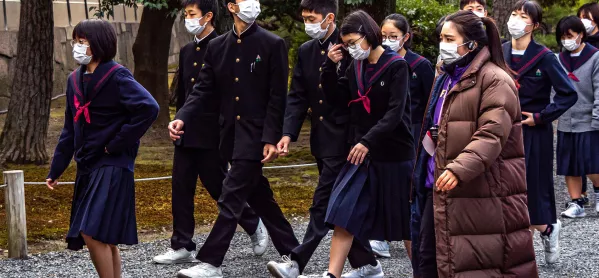Japan will close schools nationwide to help control the spread of the coronavirus, it was revealed today.
Prime minister Shinzo Abe has asked schools to remain shut until spring holidays begin in late March.
It comes as at least eight schools in the UK have closed, while others have sent pupils home amid fears they may have been exposed to the virus - known as Covid-19 - during trips to northern Italy.
But Public Health England (PHE) has said that its general advice to schools is to remain open.
Quick read: School closes after skiing trip
Coronavirus: 10 things schools should know
International news: ‘Coronavirus has closed our school for a month’
The closures come after travellers returning to the UK from northern Italy were told they may need to self-isolate as part of measures to stop the spread of illness.
Closing schools nationwide in Japan affects 12.8 million students at 34,847 schools nationwide, the country’s education ministry said.
Mr Abe said: “The coming week or two is an extremely important time. This is to prioritise the health and safety of the children and take precautions to avoid the risk of possible large-scale infections for many children and teachers who gather and spend hours together every day.”
The decision comes amid growing concern about the rise in the number of untraceable cases of the strain of coronavirus in northern Japan and elsewhere.
Japan now has more than 890 cases, including 705 from a quarantined cruise ship.
An eighth death from the virus was confirmed today in Japan’s northernmost island of Hokkaido.
Mr Abe’s announcement came hours after several local governments publicised their own decisions to suspend classes.
Officials in Hokkaido said they were closing all 1,600 elementary and middle schools. Hokkaido now has 54 confirmed cases, the largest in the country outside the cruise ship.
The emergency school closures come as schools were busy preparing for graduation ceremonies at the end of the school year.
Koizumi primary school vice principal Norinobu Sawada said the decision to suspend classes was unavoidable.
“The most important thing is to prevent infections, so there aren’t many other options,” he said.
The Japanese government has also asked companies to allow employees to work flexible hours or work from home to reduce infection risks.




